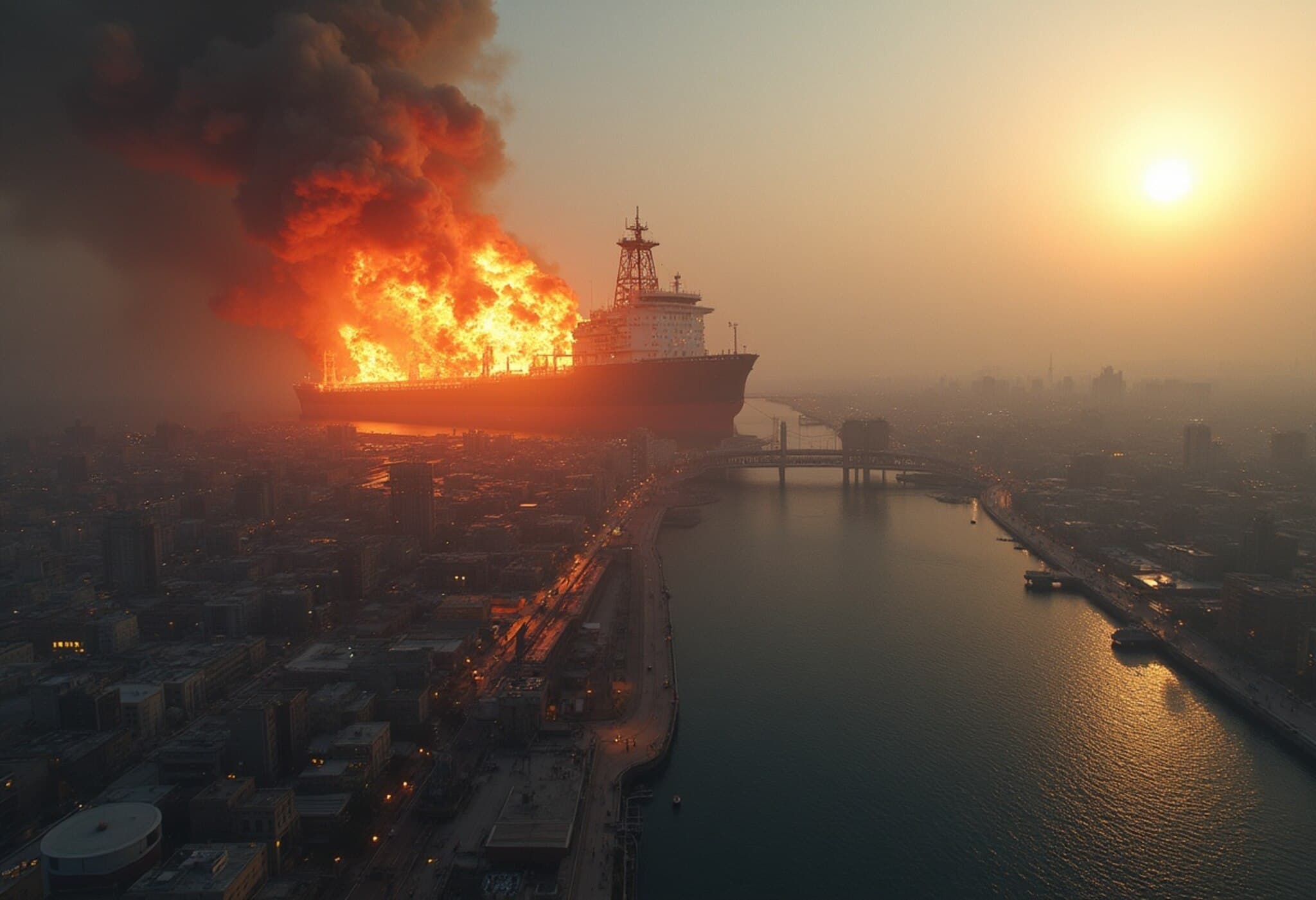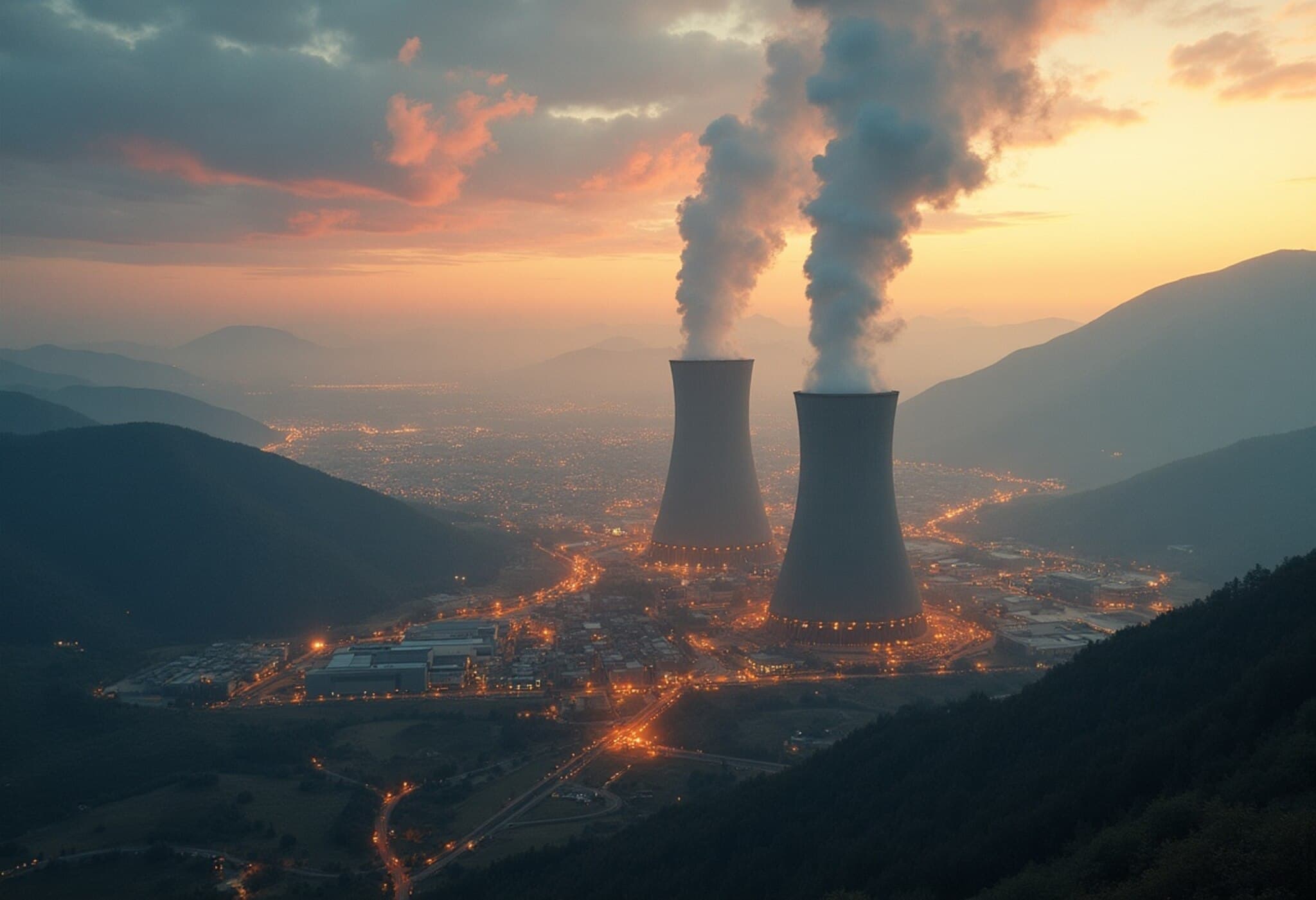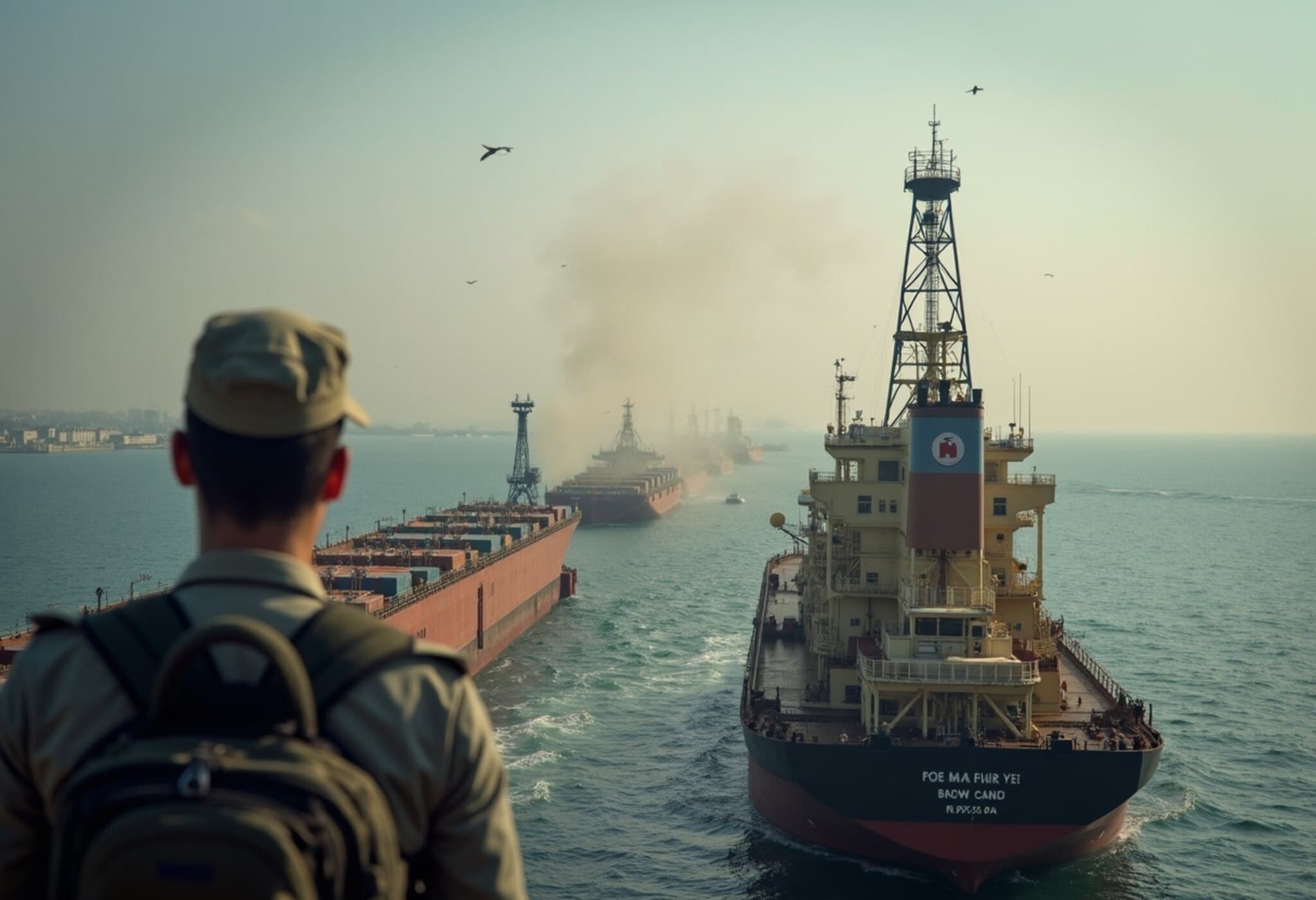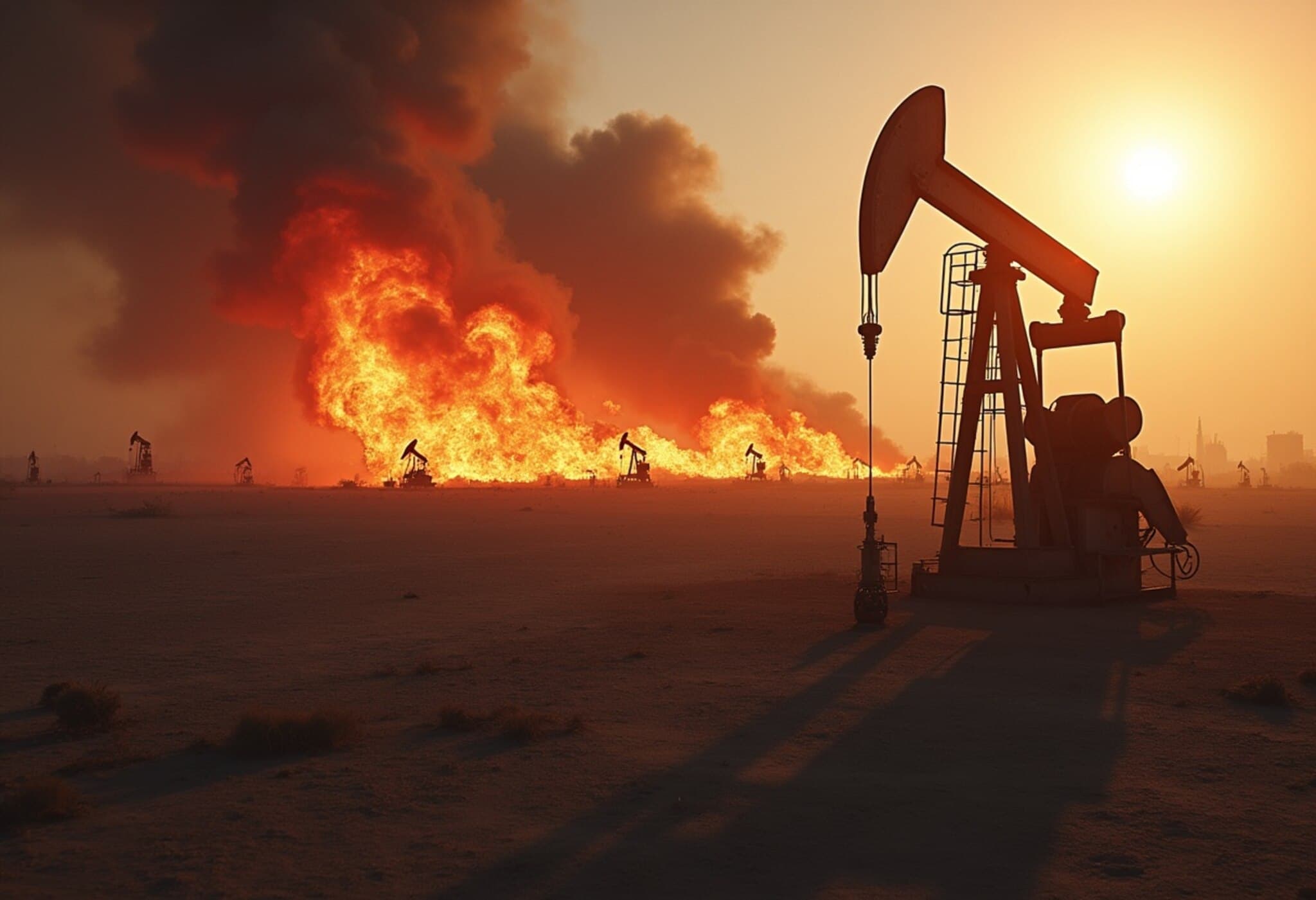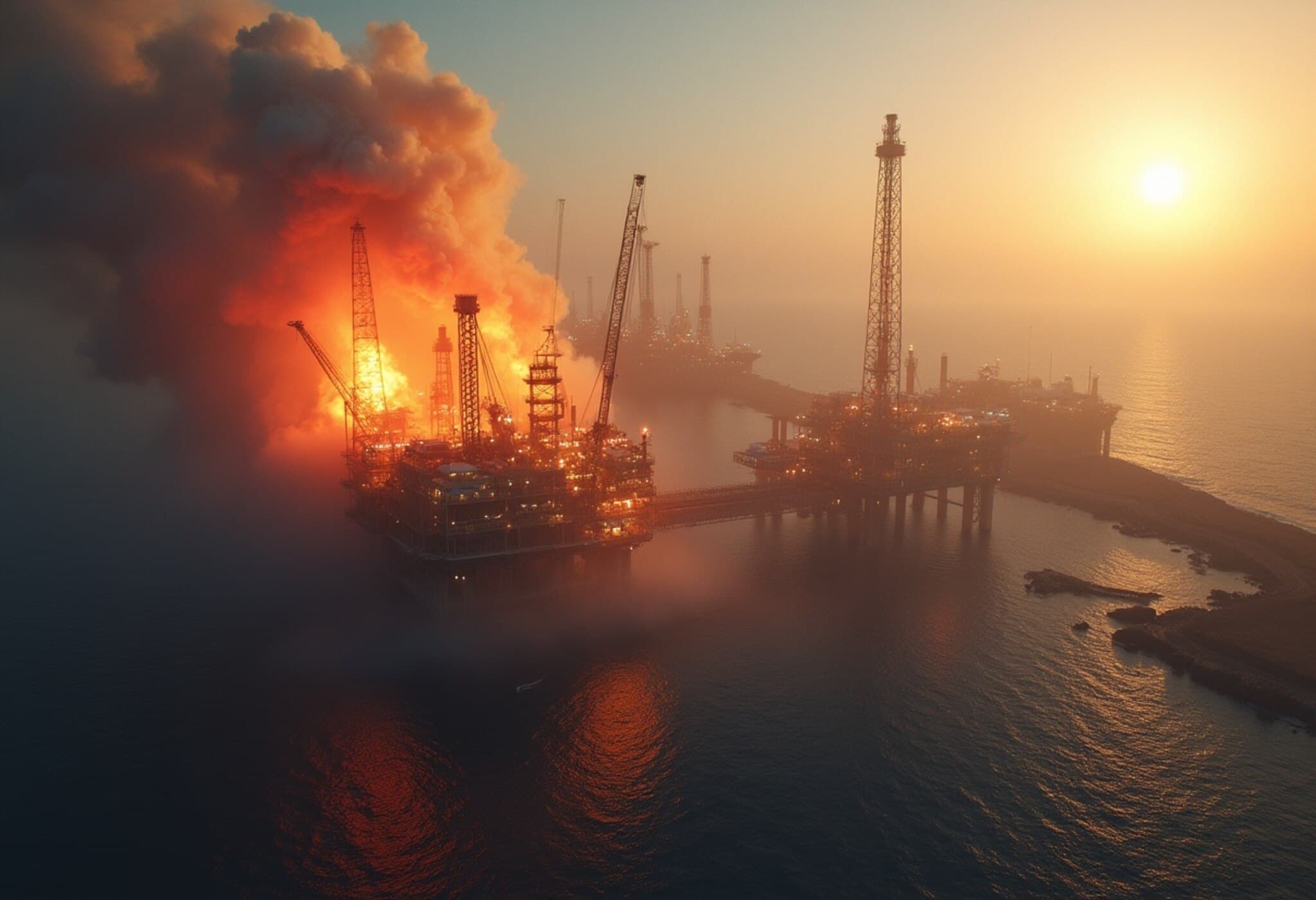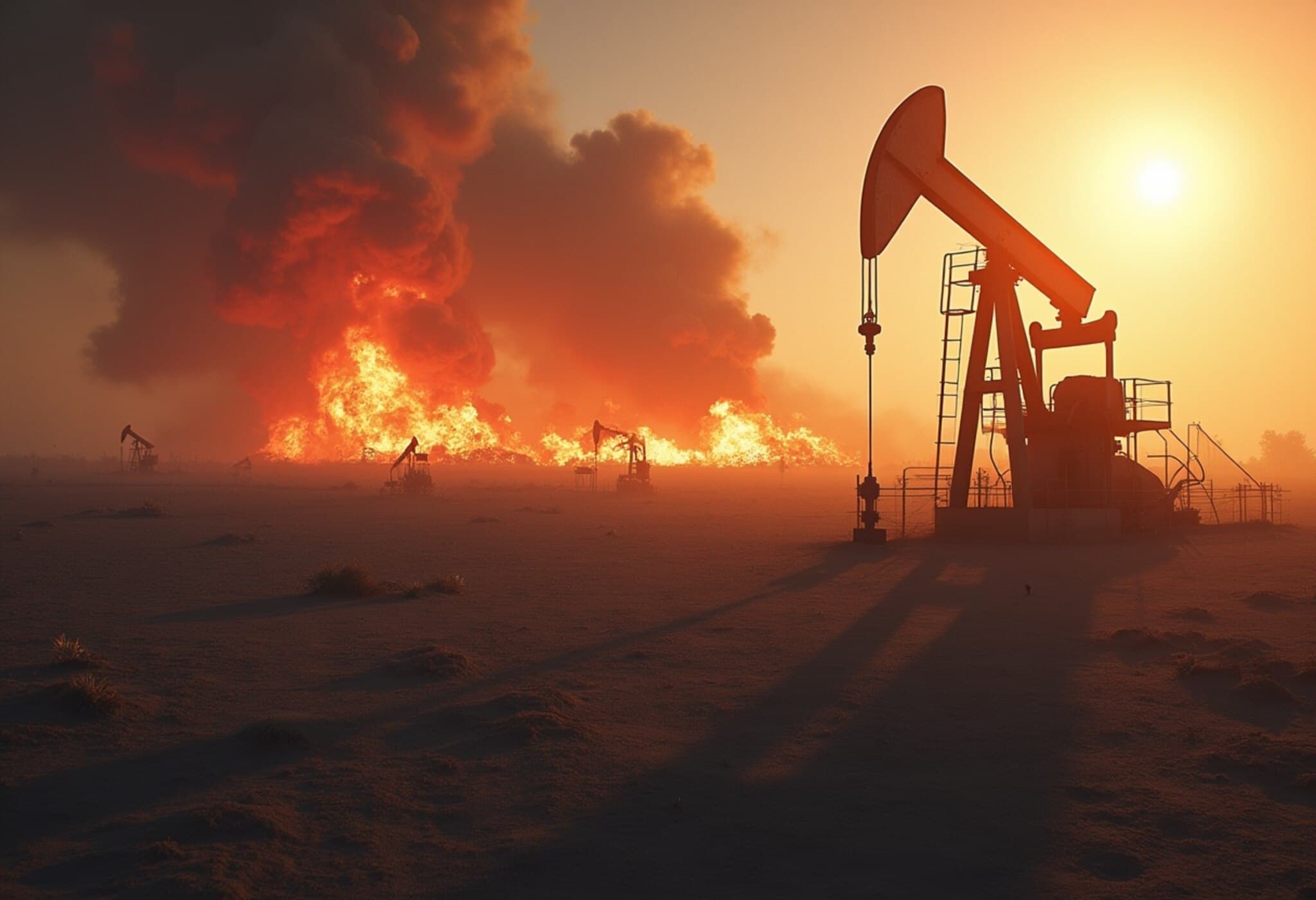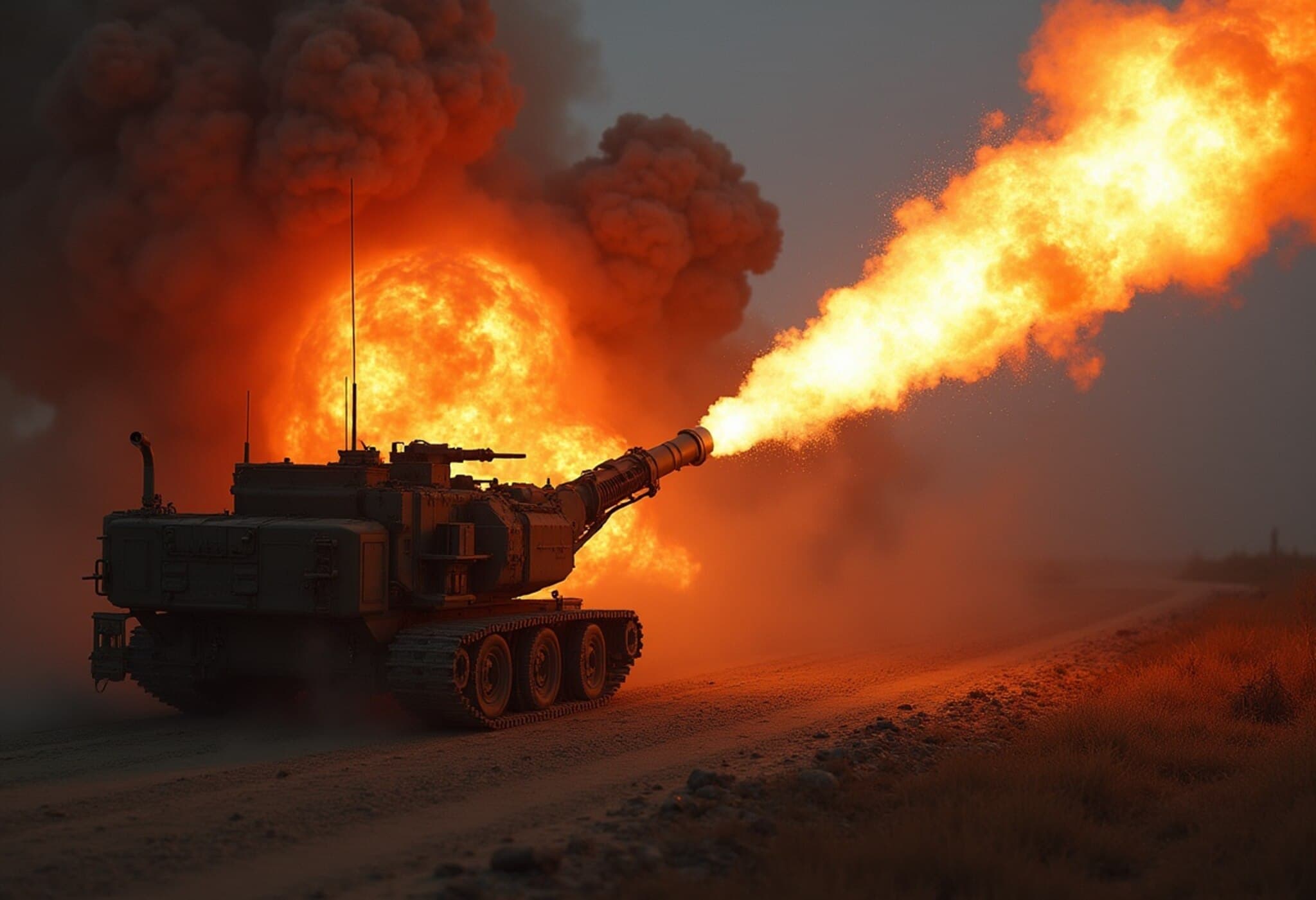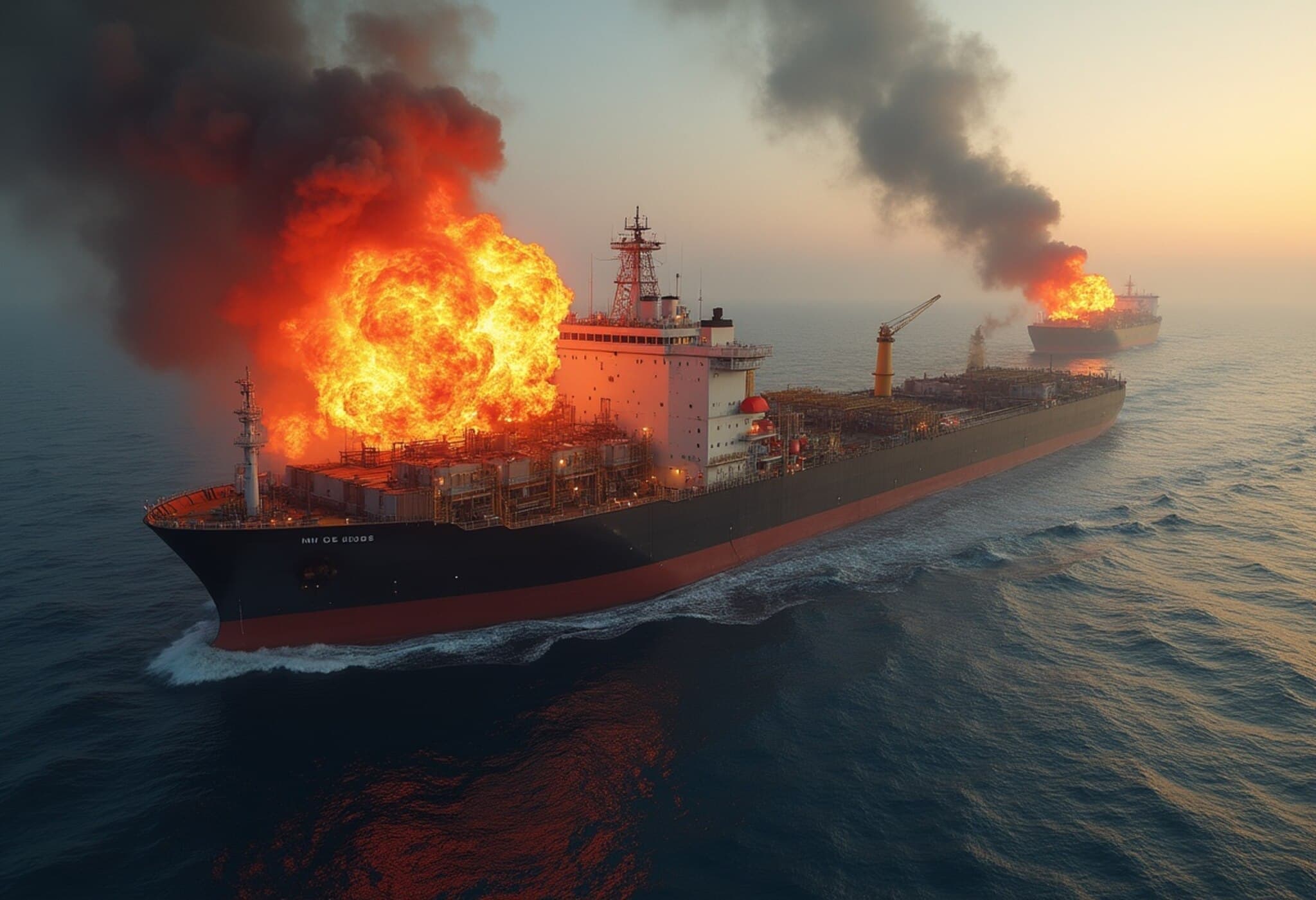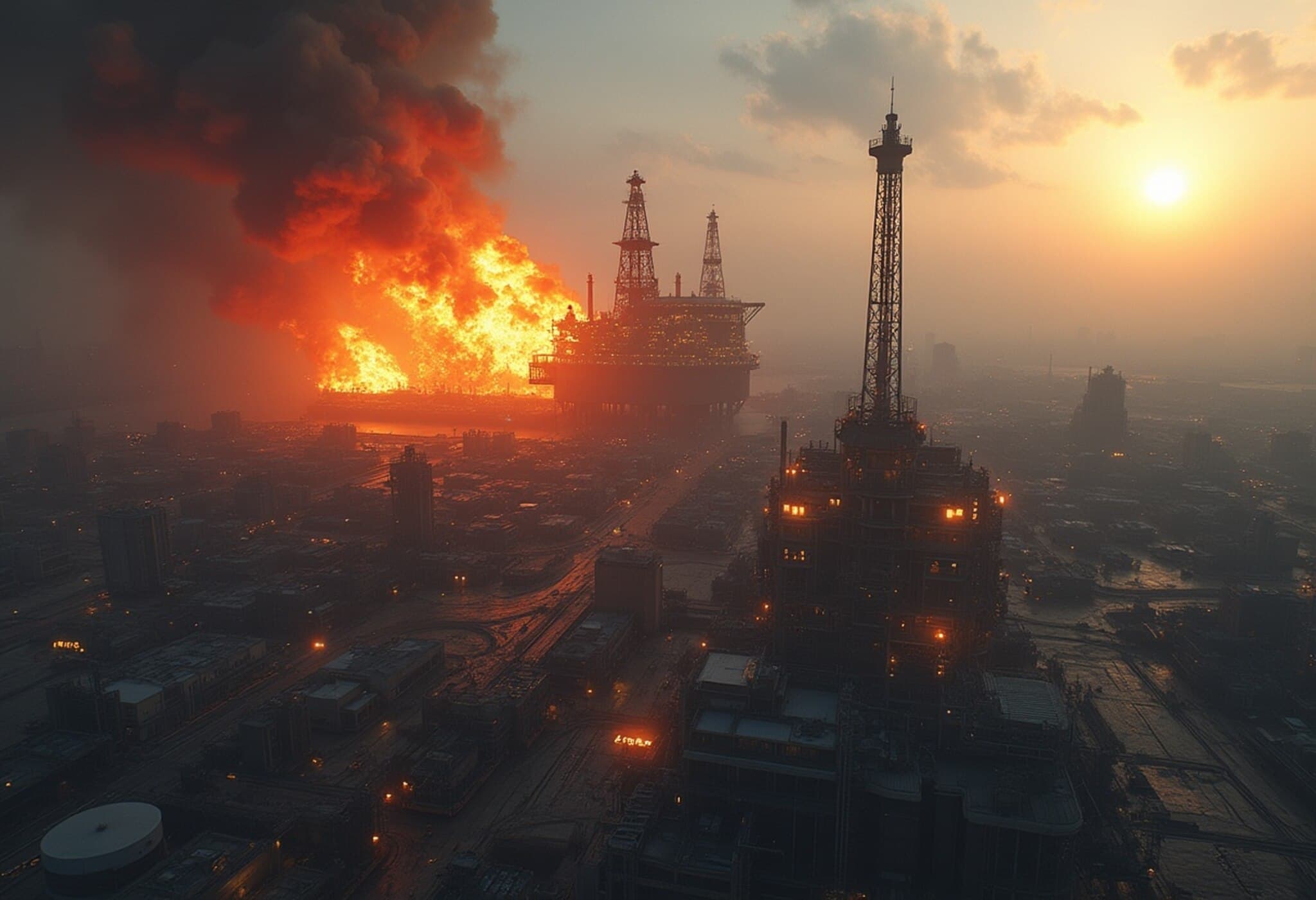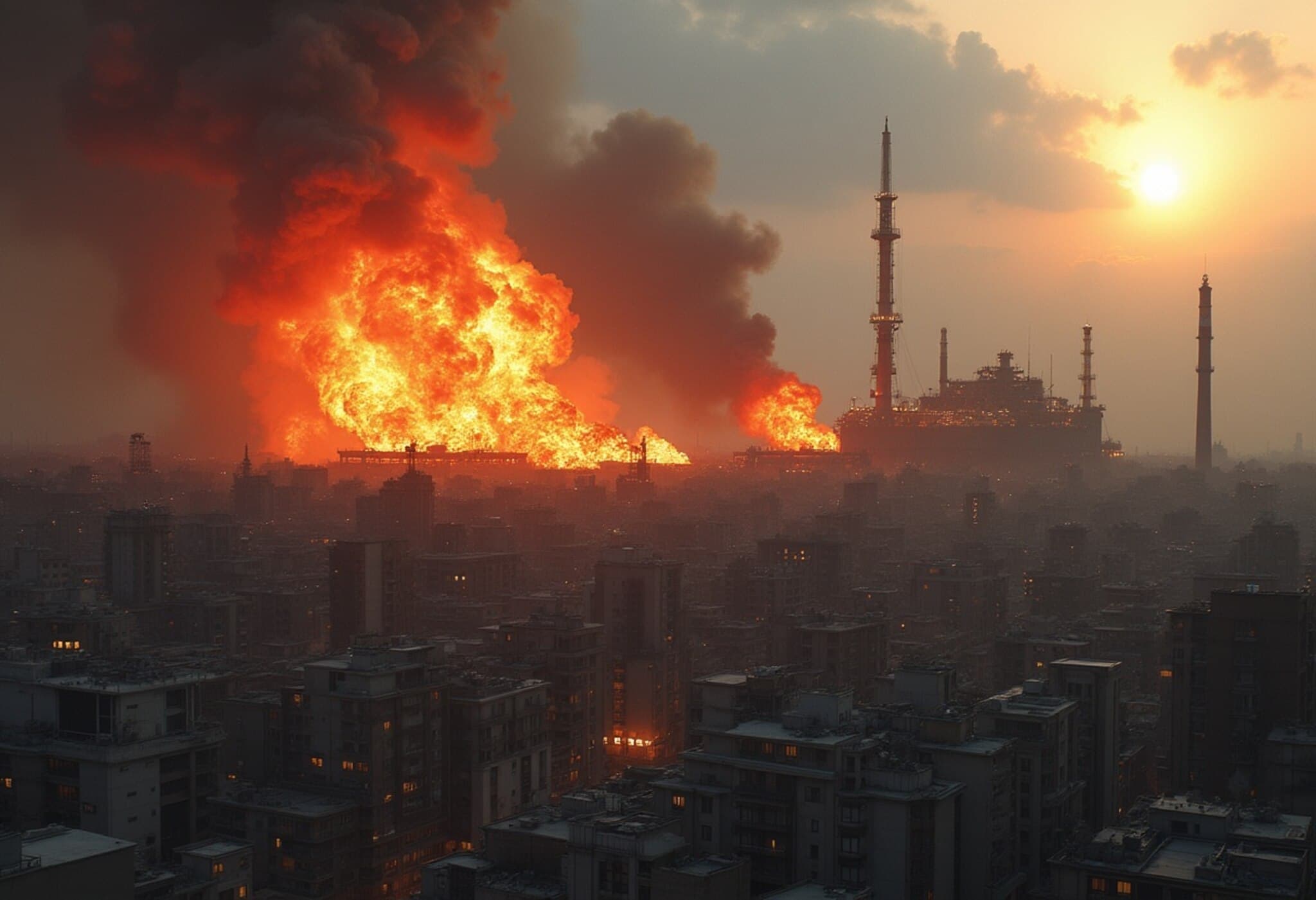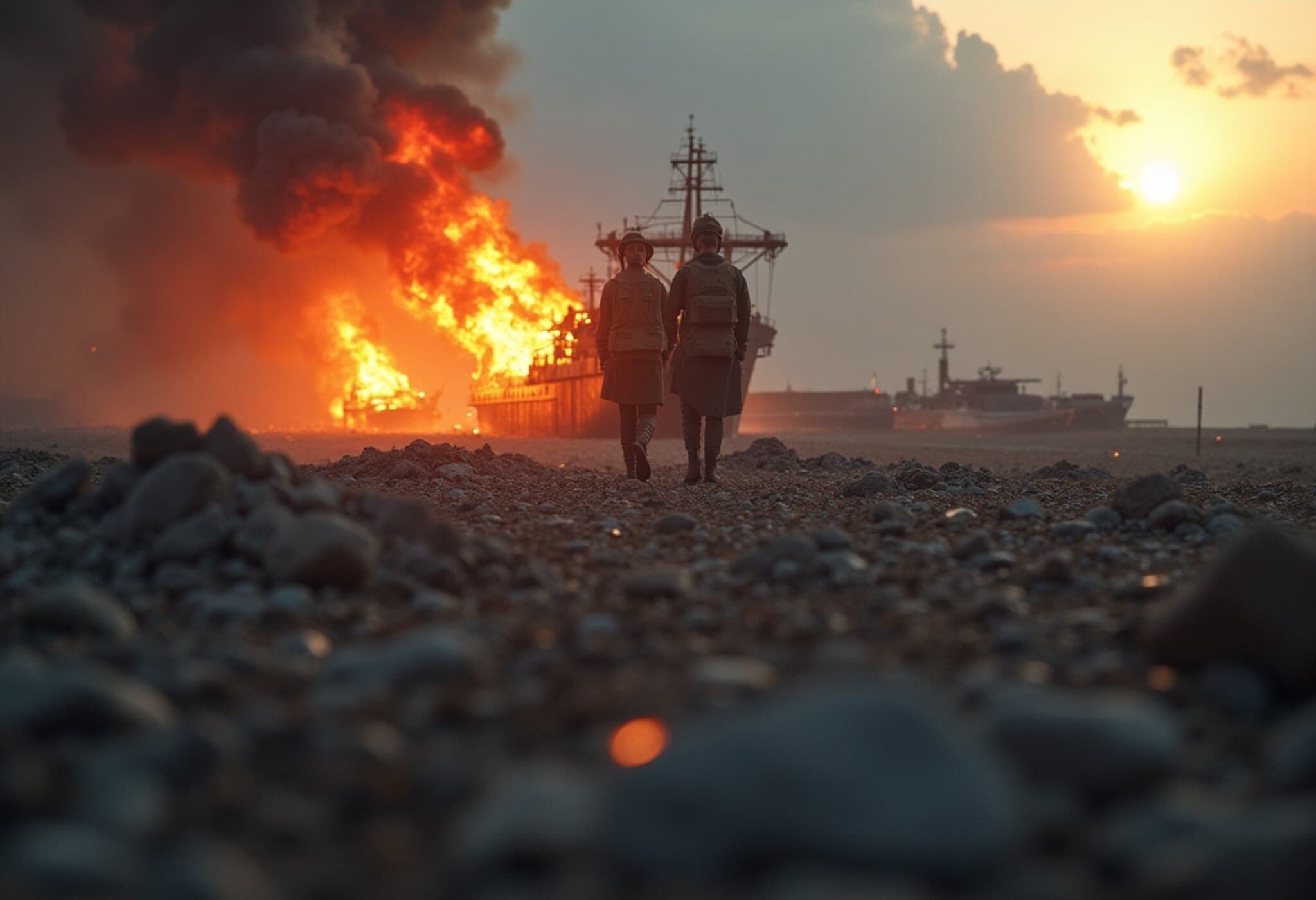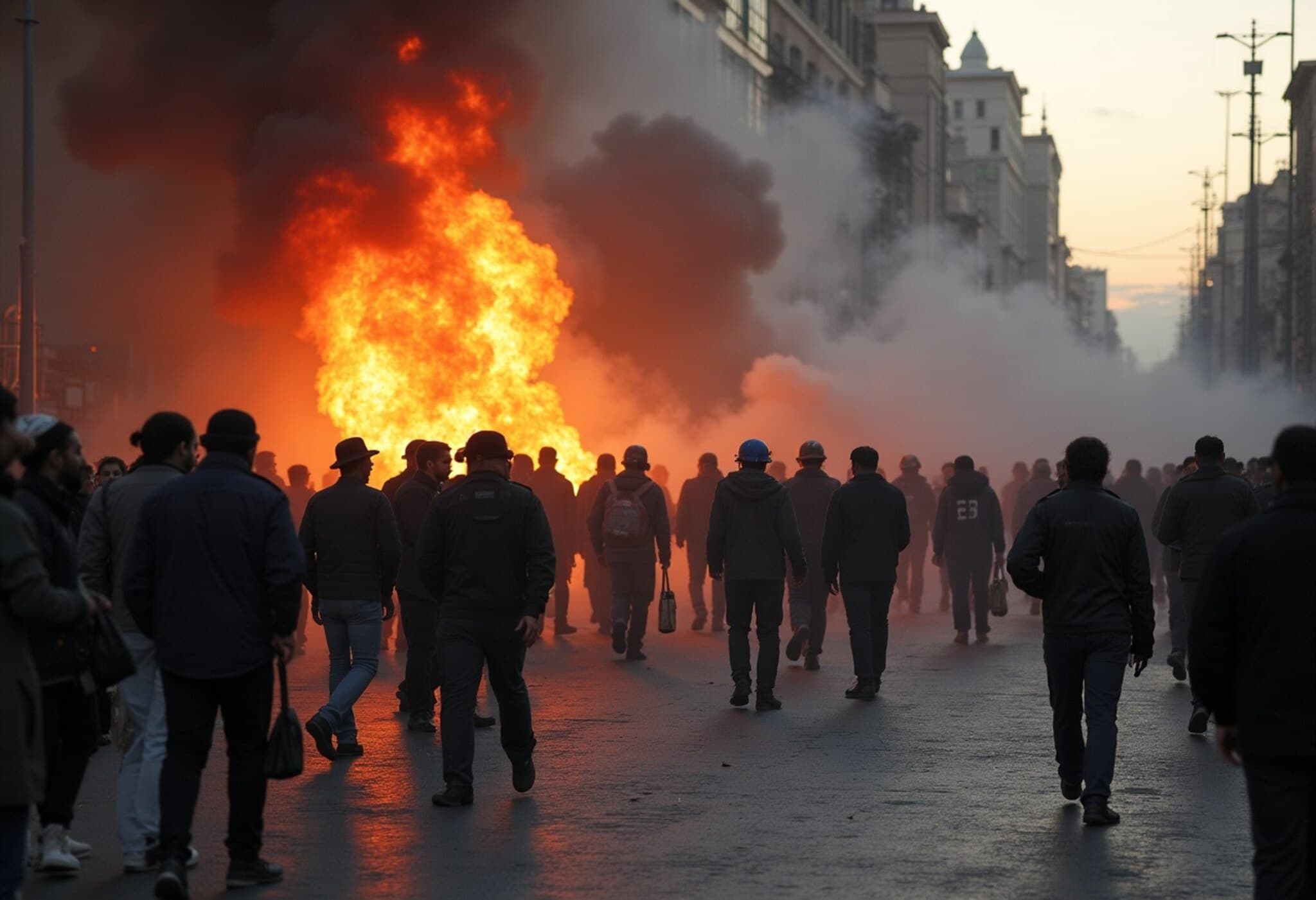Iran’s Threat to Close the Strait of Hormuz: A Global Energy Alarm
The Strait of Hormuz, one of the world's most strategic maritime chokepoints, has once again become a focal point of international tension. Iran's recent threat to blockade this narrow passage following US airstrikes on its nuclear facilities could trigger a global energy crisis, disrupting trade routes and driving oil prices to unprecedented heights. For India, heavily reliant on Gulf oil imports, the implications could be severe.
What Sparked Iran’s Stark Warning?
The latest geopolitical flashpoint ignited after a US military operation targeted three Iranian nuclear sites: Fordow, Natanz, and Esfahan. Praised as a "very successful" strike by US leadership, the attack prompted Tehran to consider drastic countermeasures, including potentially closing the Strait of Hormuz to maritime traffic. Iranian lawmakers, led by influential military figures, have signaled readiness to take this step "whenever necessary," escalating tensions in the region.
Why the Strait of Hormuz Matters So Much
Situated between Iran and Oman, the Strait of Hormuz serves as a narrow gateway connecting the Persian Gulf to the Arabian Sea. At just 21 miles wide at its slimmest point, it is a critical artery for global energy flows. In 2023, an estimated over 17 million barrels of oil—nearly 20% of global daily demand—passed through this corridor. Major oil exporters such as Saudi Arabia, Iraq, UAE, Kuwait, Qatar, and Iran depend heavily on this route for crude oil and liquefied natural gas (LNG) exports.
While alternate pipelines exist, they only handle a fraction of this volume, making a blockade especially disruptive.
Consequences of a Strait Closure: What Lies Ahead?
Soaring Global Oil Prices
Even a partial closure could send oil prices soaring beyond $120 to $150 per barrel, depending on the disruption's duration. Already, prices like Brent crude have surged past $90 amid mounting fears, impacting markets worldwide.
Energy and Economic Shocks in Asia and Europe
Countries heavily reliant on Gulf energy—India, China, Japan, and several European nations—could face inflationary pressures, energy shortages, and broader economic instability. Europe, grappling with ongoing challenges from regional conflicts, would be particularly vulnerable if LNG shipments from Qatar were halted.
Shipping and Supply Chain Disruptions
The Strait is not only vital for oil but also for container and cargo vessels. A blockade would increase freight costs, delay shipments, and force vessels to take longer, more expensive routes, deepening strains on global supply chains.
Stock Market Volatility and Recession Concerns
Rising energy costs combined with supply disruptions could unsettle global stock markets and spark inflationary spirals. Central banks might be compelled to intervene, while emerging economies dependent on energy imports could face mounting debt challenges.
Heightened Military Tensions
With naval forces from the US, UK, and France present in the Gulf, any attempt to close the Strait may trigger military escorts or even direct confrontations, further escalating regional instability.
Why India Faces Acute Risks
India imports over 60% of its crude oil from the Gulf region, making it extremely vulnerable to any disruption at Hormuz. Possible consequences for India include:
- Spiking domestic fuel prices, fueling inflation and squeezing household budgets.
- Increased shipping and insurance costs due to longer rerouted supply lines.
- Delays in crucial imports from key suppliers like Qatar, Iraq, and the UAE.
- Disruption of bilateral trade, notably in chemicals, fertilizers, and heavy industry sectors.
Although India’s strategic oil reserves could provide a short-term buffer, prolonged blockades would strain the economy and require urgent diplomatic efforts to maintain energy security.
Can Iran Afford the Fallout?
While Iran's threat might be a calculated move to strengthen its negotiating stance, shutting the Strait could backfire. Iran’s own oil exports also flow through Hormuz; a closure would jeopardize vital revenues and amplify the effects of existing sanctions. Such aggression may provoke harsh military and economic responses from the US and its allies, potentially isolating Iran further— even from countries like China that currently trade with Tehran.
The Road Ahead: Vigilance Amid Uncertainty
International calls urging Iran to avoid escalating the crisis highlight the delicate balance at play. Diplomatic efforts emphasize steering clear of action that could be deemed "economic suicide" for Iran. However, with global energy markets on edge and geopolitical tensions rising, the coming days will be critical in determining whether this remains a tense standoff or evolves into a crisis with far-reaching impacts on India and the global economy.

